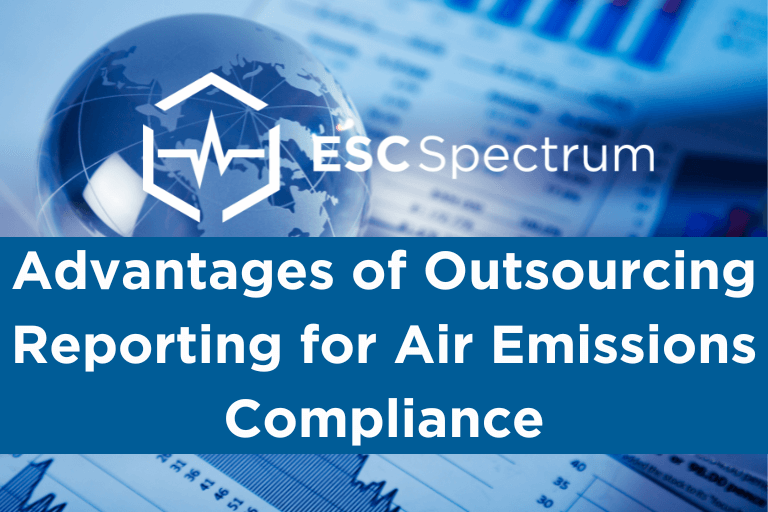Streamlining Air Emissions Compliance: The Role of Outsourcing Reporting
In industrial operations, ensuring compliance with air emissions regulations is important. Compliance entails adhering to standards and regulations imposed by operating permits and environmental agencies. Moreover, operating permits, mandated under Title V of the Clean Air Act Amendments (CAAA), categorize emission sources as either minor or major based on their pollutant emissions. Major sources exceeding specific emission thresholds face stringent monitoring and reporting requirements.
Understanding Reporting Requirements
Air quality compliance entails meticulous monitoring and reporting, governed by various regulations such as 40 CFR Part 60, 40 CFR Part 63, and 40 CFR Part 75. These regulations dictate quarterly, semiannual, and annual reporting obligations, with each report detailing compliance status, exceedance events, and downtime occurrences.
- Gain a clearer understanding of 40 CFR Part 60 with our Part 60 Monitoring Plan Overview.
- Learn about Part 75 Appendix A Span and Range Equipment Specifications with this general overview and review.
- Get ready for your Part 75 audits with ESC Spectrum’s useful guide and checklists for each part of the air emissions compliance process.
The Complexity of Reporting
Navigating the intricacies of compliance reporting can be overwhelming. The reporting landscape is multifaceted, from quarterly exception reports highlighting exceedance events and downtime occurrences to semiannual monitoring reports covering various monitoring requirements.
Additionally, annual compliance reports under Part 75 demand comprehensive data on emissions, unit operating hours, and quality assurance activities.
The Role of ECMPS in Reporting
In this complex reporting environment, the Emissions Collection and Monitoring Plan System (ECMPS) emerges as a crucial tool. ECMPS serves as a centralized data submission and evaluation platform, facilitating compliance with EPA regulations. Its functionalities, including importing XML files, creating monitoring plans, and submitting data to the EPA host system, streamline the reporting process.
- Your monitoring plan may change or you may need to clear errors on EDR files. Learn how to resubmit data to ECMPS.
- Learn more about the valuable lessons our Reporting Engineers have learned while working with ECMPS to achieve the best results.
Advantages of Outsourcing Reporting
1. Expertise and Compliance Assurance:
2. Timely and Efficient Reporting:
3. Customized Solutions and Support:
4. Risk Mitigation and Data Integrity:
5. Seamless Transition and Support for Regulatory Changes:
Partnering with ESC Spectrum

Taylor Hempel - Marketing Specialist II
Taylor Hempel is a skilled marketer specializing in content creation, social media management, and driving customer engagement. With a BBA in Marketing from the University of Texas at San Antonio, she joined ESC Spectrum in February 2022. Taylor is adept at crafting informative content about continuous emissions monitoring systems, its components and data acquisition systems allowing her to craft content that educates and informs industry professionals.


